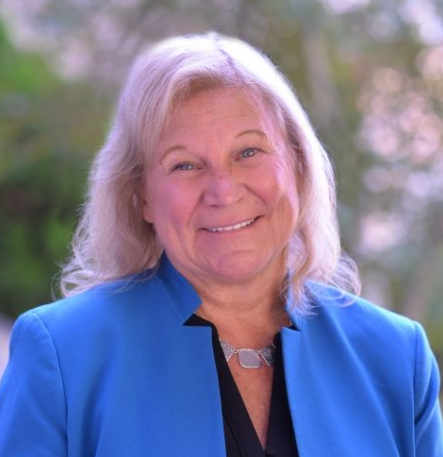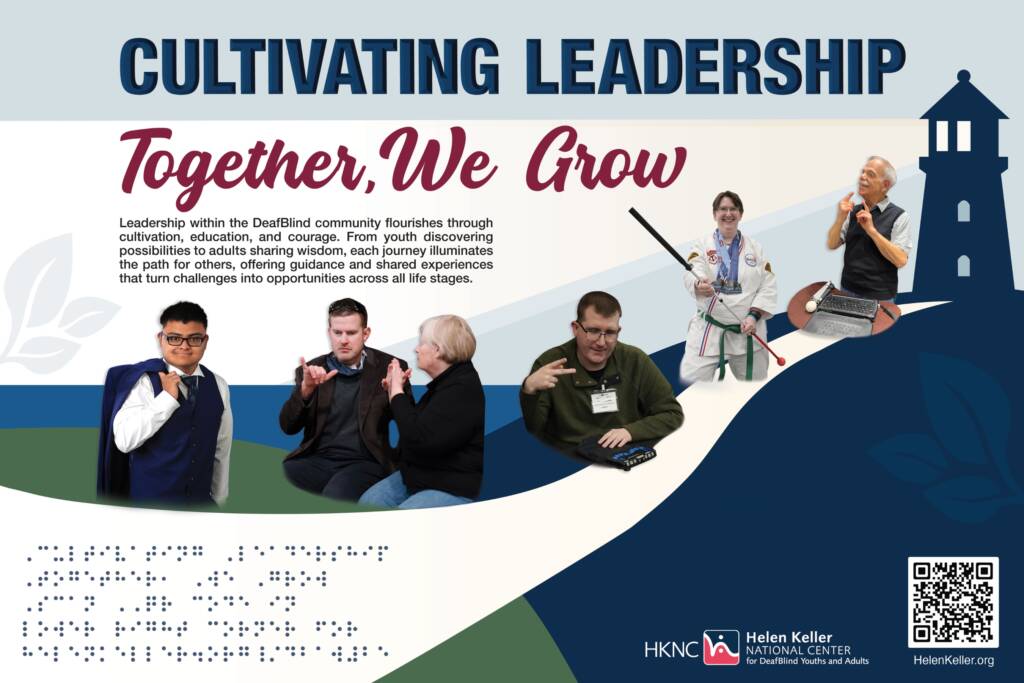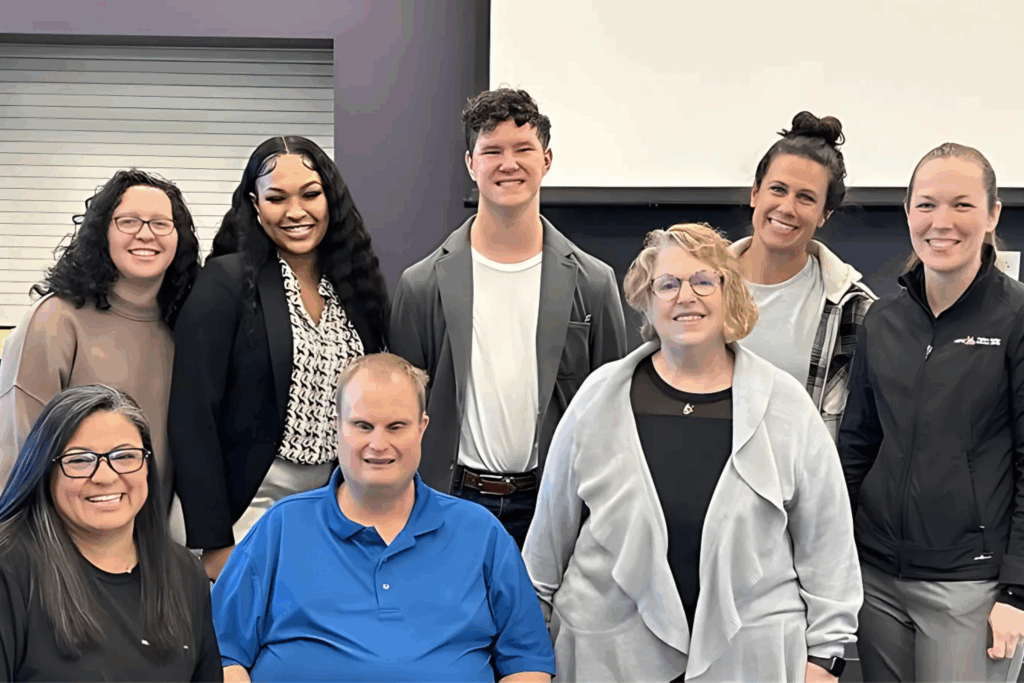Long Island Press: Helen Keller Services CEO Sue Ruzenski Shares How Organization Helps Blind and DeafBlind Individuals Thrive
Learn about Helen Keller Services provides services to youth, adults and seniors who are blind, have low vision, are DeafBlind, and have disabilities.

By Claude Solnik, Long Island Press
December 12, 2022
Original article on Long Island Press’ website
We talked with Sue Ruzenski, Ed.D., CEO of Helen Keller Services, which is comprised of two divisions: Helen Keller Services for the Blind, serving five boroughs of New York and Long Island, headquartered in Brooklyn; and Helen Keller National Center, a national program headquartered in Sands Point. She discussed serving the blind and DeafBlind and being a nonprofit that services people of all ages in New York and nationally, as well as navigating the pandemic.
Who was Helen Keller and why does she stand out so much? Helen Keller was a deafblind American author, disability rights advocate and political activist lecturer. She advocated and demonstrated to the world an understanding of people with disabilities and dedicated her life to helping others.
What does your organization do? Helen Keller Services’ mission is to enable individuals who are blind, have low vision, or are DeafBlind and with additional complex disabilities to live, work, and thrive in their community of choice.
How do you do that? We work with all age groups and we have two divisions. Our division called Helen Keller Services for the Blind provides services from early intervention, preschool, youth, adults and seniors. We provide services in the five boroughs of New York City and Long Island.
What are some of the services? We provide children with exemplary education programs at preschool age and earlier, addressing their needs if they have vision loss. Some of the children may have some autism; they may be on the spectrum. We also provide services to youth, preparing them for adulthood, working with them, exploring future careers, and providing opportunities to gain skills and ready themselves for work and college.
So you train people for careers? A big part of our organization is focused on supporting people to achieve vocational success, having an opportunity to gain adaptive skills and explore career interests.
Can you give me an example of some careers? It’s not one size fits all. It’s all about providing opportunities for people to match their interests and skills. A person might be interested in government. They might work at a legislative office in Nassau County. Or it could be a customer service representative for a bank or working as a teacher’s aide at a school program.
How do you prepare people for college? We have a program at our Helen Keller Services for the Blind division for our youth. It provides them with the tools needed to succeed in college. One of the biggest areas is technology, learning the basics. Being able to keep up with schoolwork. They will have to utilize adaptive equipment.
What technology helps with all of this? If a person is blind, they might utilize a screen reader, a program that allows them to access text with voice output. For someone who’s DeafBlind, they might use a refreshable braille display. They’ll require braille skills.
Can you tell us about the Helen Keller National Center, based in Sands Point? We are the only national program exclusively established to provide training and resources for individuals who are DeafBlind. We just were reauthorized by the House of Representatives for five years. We also have a network of 11 regional offices. We deploy DeafBlind specialists throughout the United States who focus on employment training and support people with finding a job.
What are some types of training that people might not know about? We offer orientation and mobility training to gain the skills to use a cane. It could be on campus, in a community, taking public transportation, the subway. It’s based on the individual’s desire.
How has Covid impacted the people you serve and your group? We learned so much. There was a lot of silver lining through Covid. We could offer quality services virtually to individuals who are blind and DeafBlind. We had to suspend our on-campus residential program at Sands Point. We reopened it in November of 2021. The biggest challenge upon reopening was hiring qualified staff.
How do you find and/or train staff and do you have enough or are you looking? The field as a whole is challenged. We really need to get the word out about what a great career option this could be to people. We need to renew the interest in young people in entering the field.
Since you aren’t blind or deaf, how do you know what it’s like for people who are? I work very closely with colleagues who are blind or DeafBlind, through my interactions with the people here for services and colleagues. There’s professional learning we’ve all been through. It’s so important to have representation and the voices of the community.
How are things going regarding budget, donations, and government funding? We have two divisions. The Helen Keller National Center has received support from the federal government. We also have income we receive when people come here for training and we do fundraising. We have contracts with states across the country. They sponsor people to come here for training.
You were nominated for an Academy Award for Feeling Through, a short film, in 2021. What was your connection? We at Helen Keller National Center worked collaboratively with the filmmaker, Doug Roland. We introduced him to prospective candidates to cast in the film. He cast the first DeafBlind actor, Robert Tarango, in the film. Doug Roland has partnered with us again. We were able to get several grants. We’re creating a virtual platform, a curriculum authored by people who are DeafBlind. It will provide interviews, roundtable discussions. It’s about the lived experiences of people in this community for professionals, employers, and partners in the arts.
What else is new? We’re launching a new website Dec. 1 at Helenkeller.org. This will be the go-to place for information about our programs and services, professional learning opportunities and more. It’s fully accessible with information presented in a user-friendly way.


